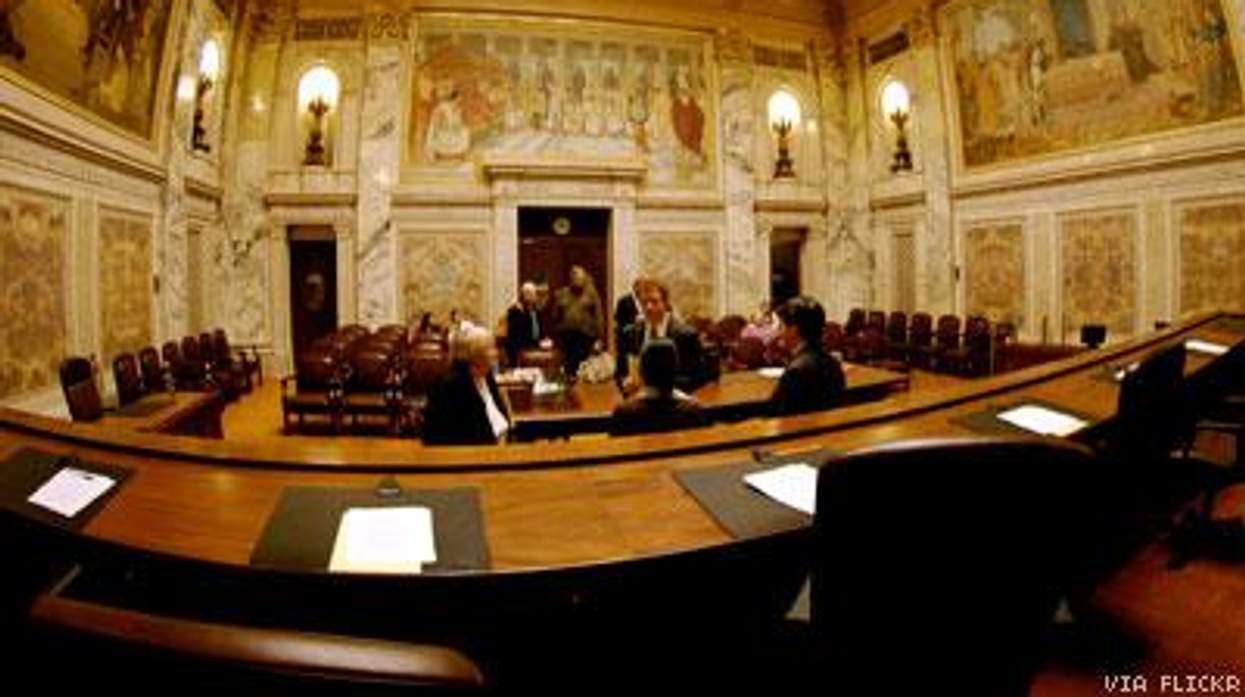A lesbian couple from Milwaukee has filed a lawsuit directly with the Wisconsin Supreme Court, challenging the state's constitutional amendment banning same-sex marriage.
Katherine Halopka-Ivery and Linda Halopka-Ivery, represented by Milwaukee attorney Paul Ksicinski, filed the suit Wednesday, Milwaukee's Journal Sentinel newspaper reports. Their suit contends that because of the significance of the issue, it is appropriate for the Supreme Court to have original jurisdiction in the case. The suit names state and Milwaukee County officials as defendants.
The women were married in California in December, but Wisconsin does not recognize their union. "According to the suit, Katherine Halopka-Ivery tried to transfer ownership of real estate in her name to the couple and Milwaukee County register of deeds officials refused to record the transfer unless the couple filed for a Wisconsin domestic partnership," the Journal Sentinel reports.
In most states where same-sex marriage is not legal, this means not recognized by the government. But the Halopka-Iverys' suit points out that gay and lesbian couples in Wisconsin can actually face criminal prosecution. The state's decades-old "marriage evasion" law provides for up to nine months in jail and $10,000 fines for couples convicted of going to another location to enter into a marriage prohibited by Wisconsin. The law is seldom enforced and is being challenged along with the marriage ban itself in a separate suit filed in a federal court in February.
The Halopka-Iverys' suit notes that Wisconsin has taken progressive stands on LGBT rights generally; in 1982 it became the first state in the nation to ban discrimination based on sexual orientation. Also, unlike many other states, it never banned interracial marriage.
The state legislature passed a strong domestic-partnership law in 2009, conferring many of the rights of marriage to same-sex couples who register. Conservatives are challenging it in a lawsuit, saying it violates the voter-approved 2006 amendment. That case is pending in the state Supreme Court, which is expected to issue a ruling this summer.




































































Charlie Kirk DID say stoning gay people was the 'perfect law' — and these other heinous quotes